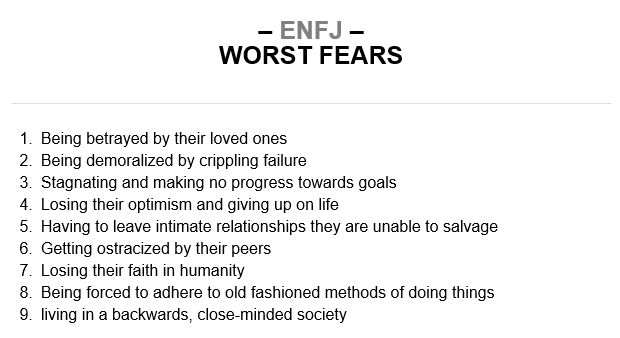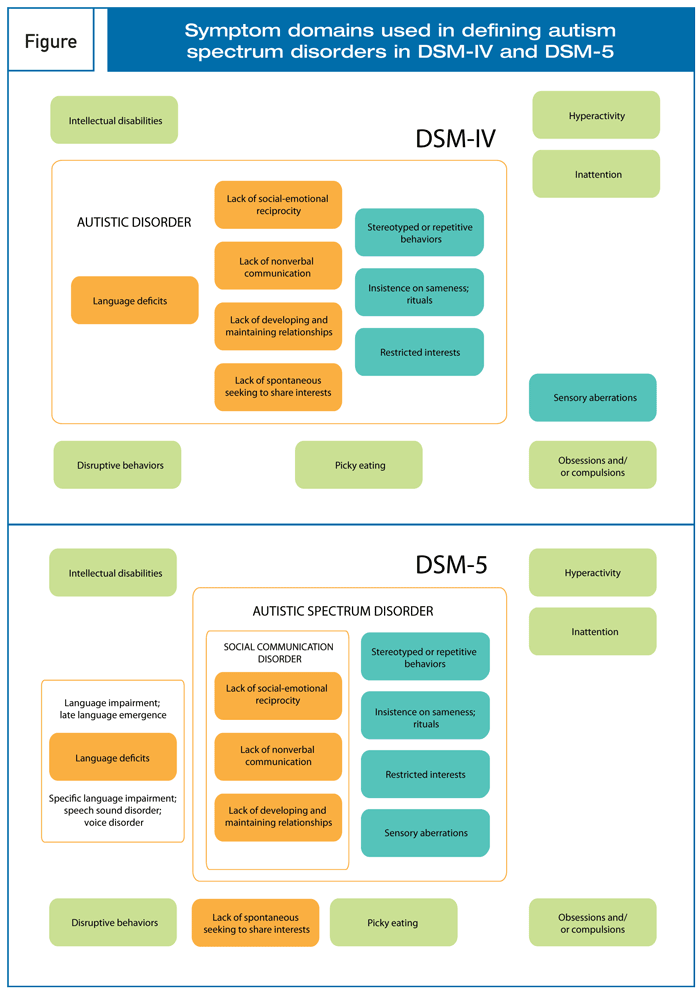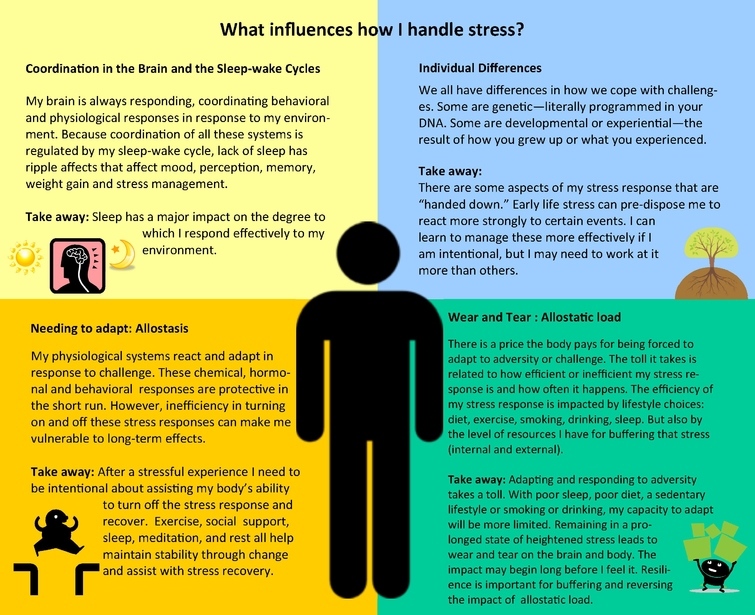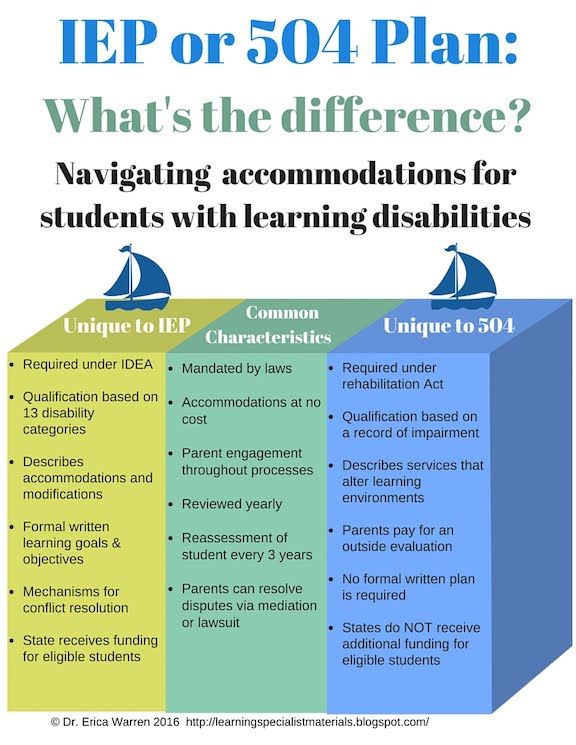Intj personality type strengths and weaknesses
INTJ Strengths & Weaknesses and Growth for the INTJ Personality Type
INTJ Strengths
Strategy. INTJs not only see the plan or course of action, they are ready and prepared with several back-ups depending on the various circumstances that could possibly arise. With their expansive, future-focused vision for seeing possibilities and recognizing potential, they are also detailed and logical enough to see holes, gaps and inconsistencies.
Innovation. Though the INTJ may outwardly appear intractable, as a type they are actually quite receptive to and supportive of change and innovation, and this open approach helps to enhance their problem-solving savvy. They believe that most people, processes and systems have the potential to be improved upon and they will seek new and creative ways to try to bring about that change.
Determination. INTJs are revered for their bravery and steadfastness in the face of challenge. They are characteristically determined in whatever they are doing, even to the point of relentless, and are not afraid to move in to tackle the really difficult challenges. Rather than feeling daunted or frustrated, this excites and exhilarates them. They trust their judgment and are confident in their ability to solve the problems and overcome the challenges they encounter in their personal or professional lives.
Willingness to Learn. INTJs aren’t only looking to change externals and other people. They are also diligently committed to working on themselves. Though they won’t typically dwell long upon their feelings and emotional state, they are fully engaged in the work of self-improvement. They are lifelong learners and will always be looking for ways to increase their knowledge and skills.
INTJ Weaknesses
Superiority. The INTJ’s prowess in the area of intellect, logic and reason is unarguable and definitely among their chief strengths, as is their confidence in their ideas.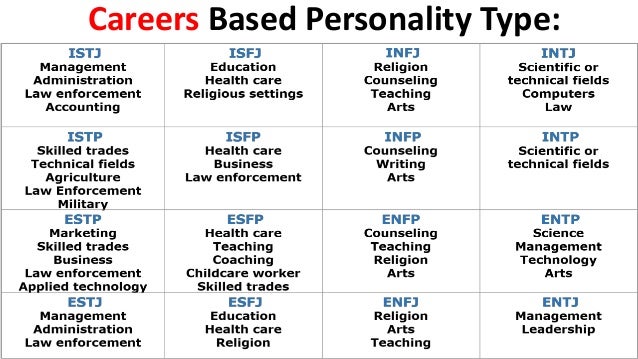 However, these strengths can turn into weaknesses when they morph into a superiority complex. Unfortunately, among INTJs, this is not uncommon. They may be arrogant and condescending, as well as impatient with people who don’t catch on as quickly as they’d like. With those who demonstrate less ability to think logically and rationally, they may be particularly judgmental and intolerant.
However, these strengths can turn into weaknesses when they morph into a superiority complex. Unfortunately, among INTJs, this is not uncommon. They may be arrogant and condescending, as well as impatient with people who don’t catch on as quickly as they’d like. With those who demonstrate less ability to think logically and rationally, they may be particularly judgmental and intolerant.
Emotional Distance. INTJs are also known for their low EQ and unwillingness to engage the emotions—their own or others. Preferring to conceptualize the world on a logical, rational basis, they tend to have little patience for emotional concerns. They struggle to pick up on and respond to the emotional cues and needs of others. This can stifle interpersonal relationships, as well as their own growth and development, and may end up keeping others at (at least) arm’s distance.
Perfectionism. While the meticulousness of the INTJ can be a strength, as in all things, too much of a strength can easily become a weakness, and for the INTJ, this natural fastidiousness quickly becomes perfectionism, and in this they can be quite fierce and painstaking.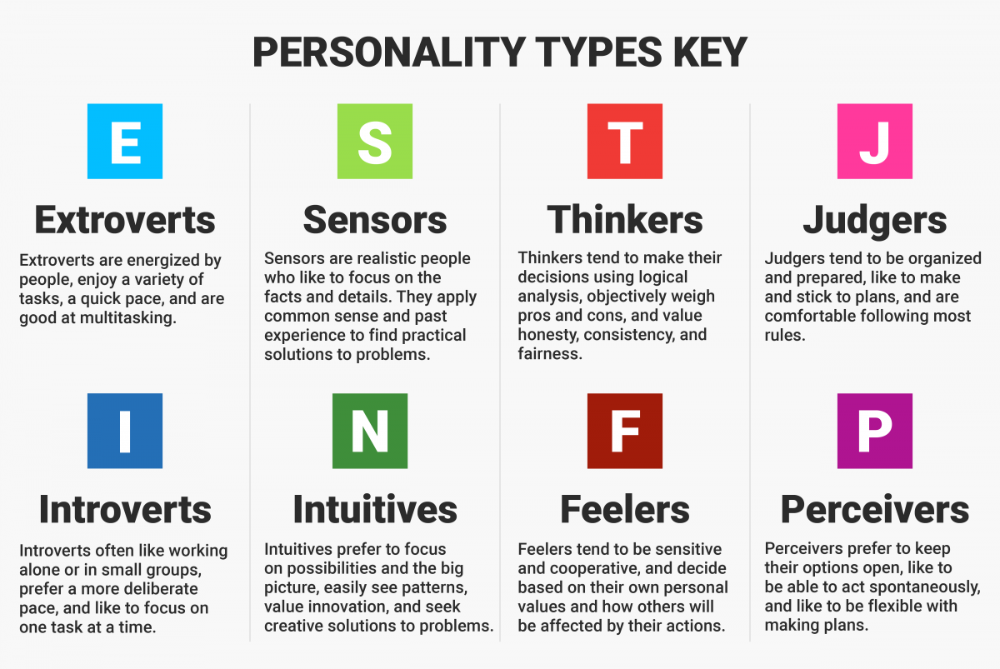 Their standards in general are exacting and this critique may be directed not only toward themselves, but toward others as well.
Their standards in general are exacting and this critique may be directed not only toward themselves, but toward others as well.
Imbalance. The INTJ places a high priority on work and will be quite devoted to his or her professional life. But this comes at a price, namely in time that might be spent on family, other relationships and leisure. It is easy for the INTJ to find him or herself with misplaced priorities and, as a result, relational problems. While their drive to succeed professionally can certainly pay off, it can take a toll on the rest of their lives.
INTJ Growth and Development
In order to reach their full potential, INTJs should:
Go outside of themselves. INTJs are internal processors and accustomed to finding the right answers or the best plans within their own minds. However, such a constant internal focus can mean the INTJ may miss important details, as well as the potentially insightful and helpful contributions of others.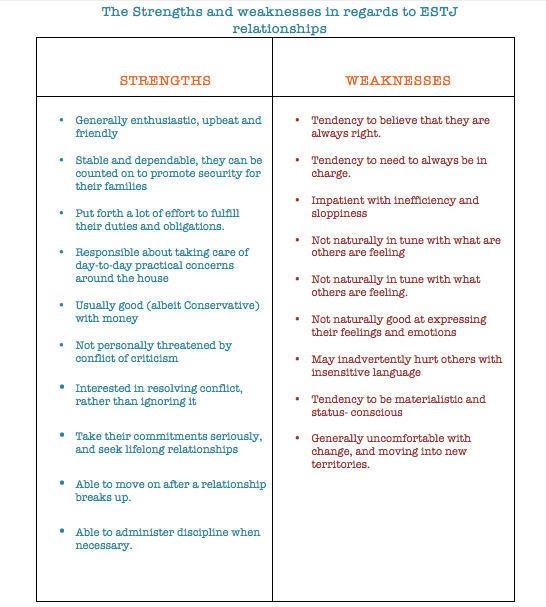 To improve their own ideas and plans, INTJs should seek input from friends, family and colleagues. Though the INTJ has full confidence in his or her own abilities, conferencing with others can breathe new life into a stale approach and can help to uncover blind spots.
To improve their own ideas and plans, INTJs should seek input from friends, family and colleagues. Though the INTJ has full confidence in his or her own abilities, conferencing with others can breathe new life into a stale approach and can help to uncover blind spots.
Go inside. INTJs don’t naturally introspect deeply or spend much time considering their emotional state. They focus internally on their many ideas and abstract concepts, but when it comes to looking at themselves and their feelings, they often avoid the activity. Out of touch with their own blind spots and character defects, INTJs can be quick to find fault with others. One solution is to work on cultivating humility and compassion.
Balance. It is easy for the INTJ to become completely consumed with work or some project or plan that he or she has devised. In the moment, this will feel exhilarating for the individual, but may have consequences for personal wellbeing and relationships in the long run.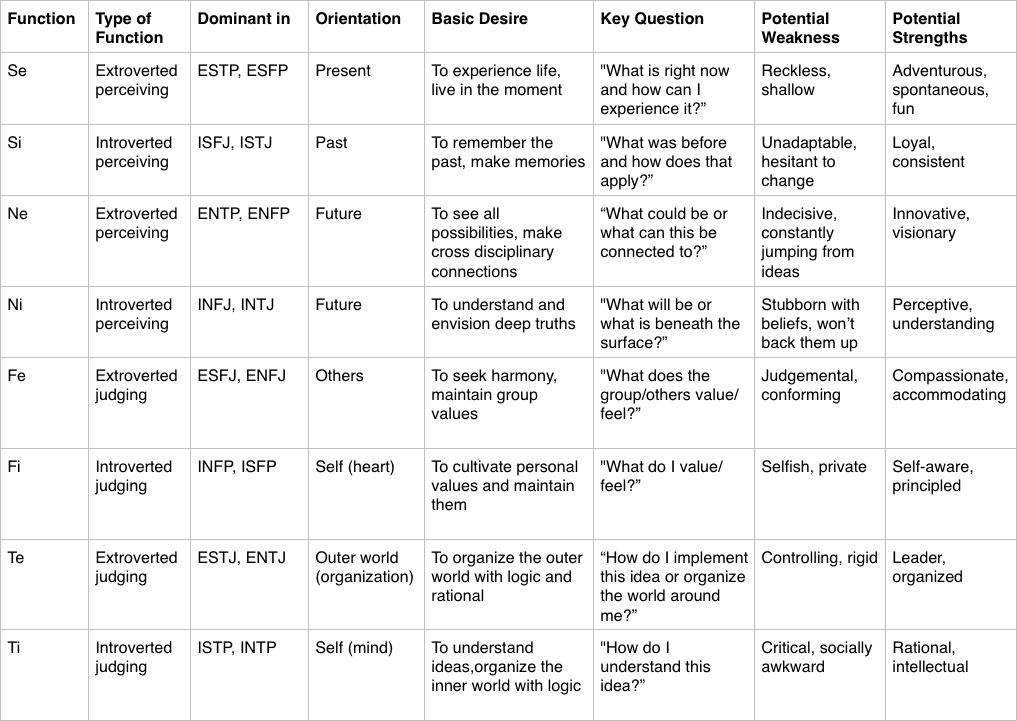 The INTJ should strive for better work-life balance. That also means, as mentioned, taking time to examine his or her emotions and responses. It won’t come naturally, but will help interpersonal relationships immensely.
The INTJ should strive for better work-life balance. That also means, as mentioned, taking time to examine his or her emotions and responses. It won’t come naturally, but will help interpersonal relationships immensely.
Pick their battles. It is not necessary to argue every single point, though the INTJ’s Thinking nature will compel him or her to do so. This is the default response of their perfectionistic hyper-logical nature. Thus, to better navigate all areas of life, the individual may need to understand that sometimes you have to let the small things go so you can accomplish the big things in the long run.
If it ain’t broke…and even if it is. The INTJ may need to resist the desire to be continually improving and changing. Their view on potential and possibilities for all products, systems and people, leads them to want to always be fixing and “improving.” What they may not realize is that not all people want to be fixed and not all companies want greater efficiency.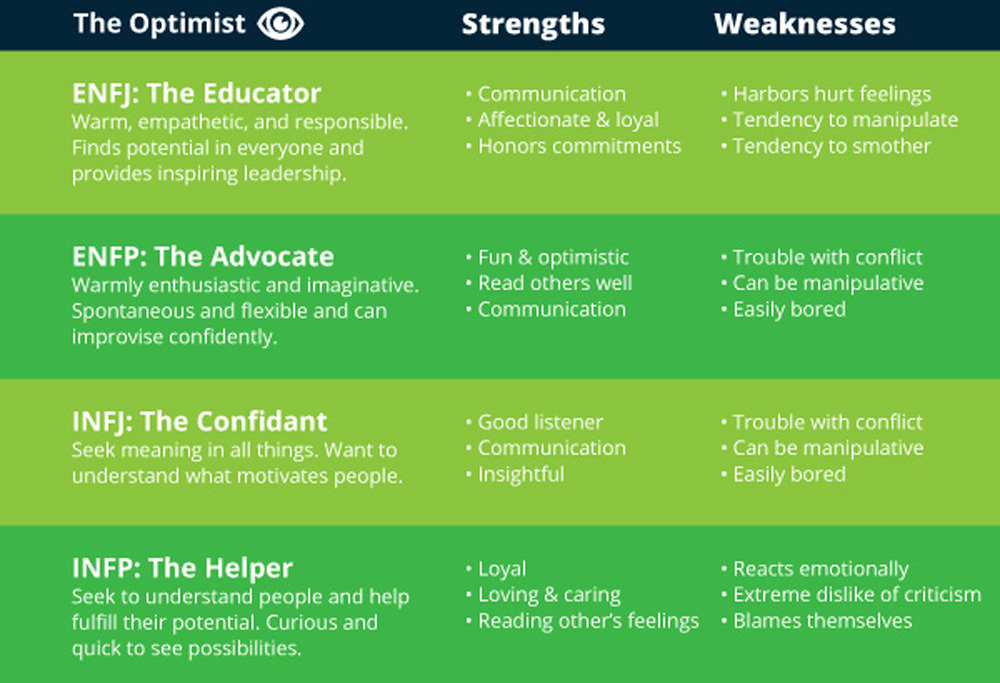
All INTJ Strengths & Weaknesses Listed and Explained
If the Myer-Briggs Personality Indicator (MBTI) assessed you the INTJ personality type, then you are among the rarest personality types in the world.
Perhaps you have read the basic INTJ personality analysis, but if you are looking for further profile analysis, this article focuses on INTJ’s strengths and weaknesses.
The MBTI identifies 16 personality types, determined by the four cognitive functions that shape a person’s identity.
The meaning of each personality type comes as an acronym for these four functions. Therefore the four traits that define INTJ meaning and personality are: introverted, intuitive, thinking, and judging.
These individuals are superior strategists that analyze every matter profoundly and in detail. Since INTJs always come up with creative solutions, they are nicknamed Architects, Strategists, or Masterminds.
Are you an INTJ?
Take the free personality test to identify your true personality type.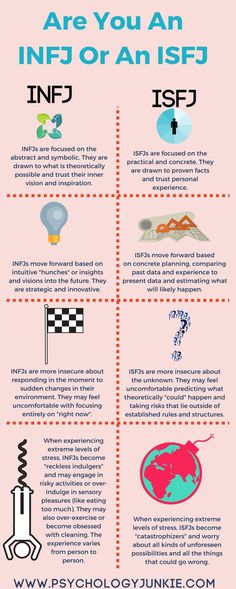 16 Personality Types test reveals who you naturally are and why you do things the way you do. With this knowledge of yourself, you can build successful careers, find a dream job, build strong relationships, and live an authentic life.
16 Personality Types test reveals who you naturally are and why you do things the way you do. With this knowledge of yourself, you can build successful careers, find a dream job, build strong relationships, and live an authentic life.
TAKE THE FREE PERSONALITY TEST
All INTJ Strengths and Advantages
Independent
Reliable and Loyal
Rational
Determined and Willing to Learn
INTJs usually set high standards that are hard to achieve. But not only do they have high expectations for others, they often expect a lot from themselves.
So, when caught in a complex situation that requires additional insight, they are willing to learn whatever it takes to achieve the goal. They strive to increase their competence and broaden their horizons.
Curious and Innovative
Versatile
Are you an INTJ?
Take the free personality test to identify your true personality type. 16 Personality Types test reveals who you naturally are and why you do things the way you do.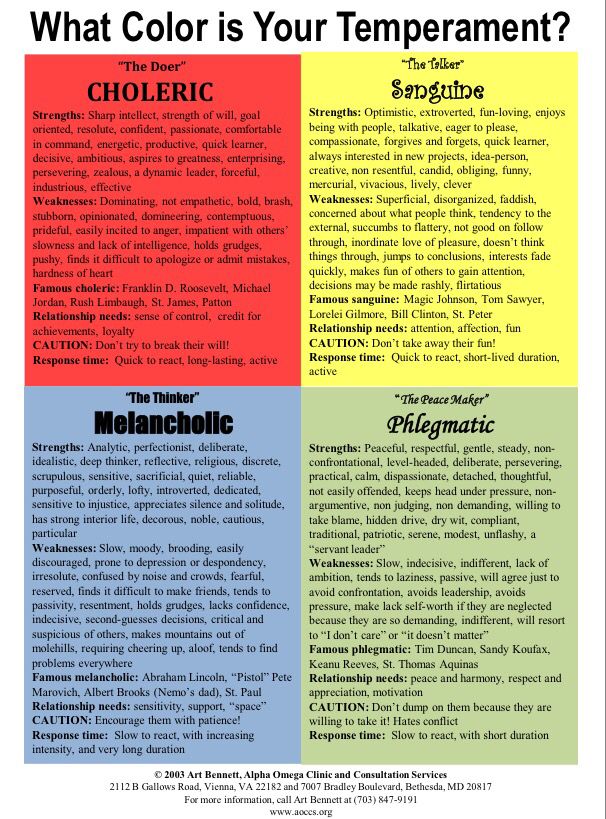 With this knowledge of yourself, you can build successful careers, find a dream job, build strong relationships, and live an authentic life.
With this knowledge of yourself, you can build successful careers, find a dream job, build strong relationships, and live an authentic life.
TAKE THE FREE PERSONALITY TEST
All INTJ Weaknesses & Flows You Should Be Aware Of
Intolerant
Arrogant
Emotionally inexpressive
Overly Critical
Highly Independent
Being independent has its advantages. However, when it stands in the way of cooperation and sharing ideas, then it becomes a flaw.
INTJs believe that only if they do the job themselves will be completely done. Otherwise, they express a strong doubt when somebody else takes responsibility.
Too introverted
Avoid casual gatherings
INTJ Growth and Development Opportunities
Nobody is infallible, and that refers to INTJ personality type, even though they are most likely to strive for perfectionism. For the most part, this tendency to set incredibly high standards comes very naturally to them.
In between their innate intelligence and logical thinking, and the high opinion they have of themselves, INTJs need to find a proper balance to flourish their strengths and tackle their weaknesses wisely.
How To Boost and Maximize INTJ Strengths
- Analyze without overthinking!
INTJs analyze everything that gets caught in the whirlpool of their thoughts. Sometimes they tend to get too focused on trivialities that they forget the broader picture.
Even though this mostly depends on their personality type, i.e., if the INTJ is an Assertive or a Turbulent type (find out more about the differences between INTJ-a and INTJ-T), both of the identities at a certain point of time are prone to overthinking.
They are advised to intuitively approach any subject without being too critical or dismissive to spare time and energy.
- Find their place in society
Many INTJs often feel as if they came from another planet since they rarely come across someone with a genuine understanding of their personality.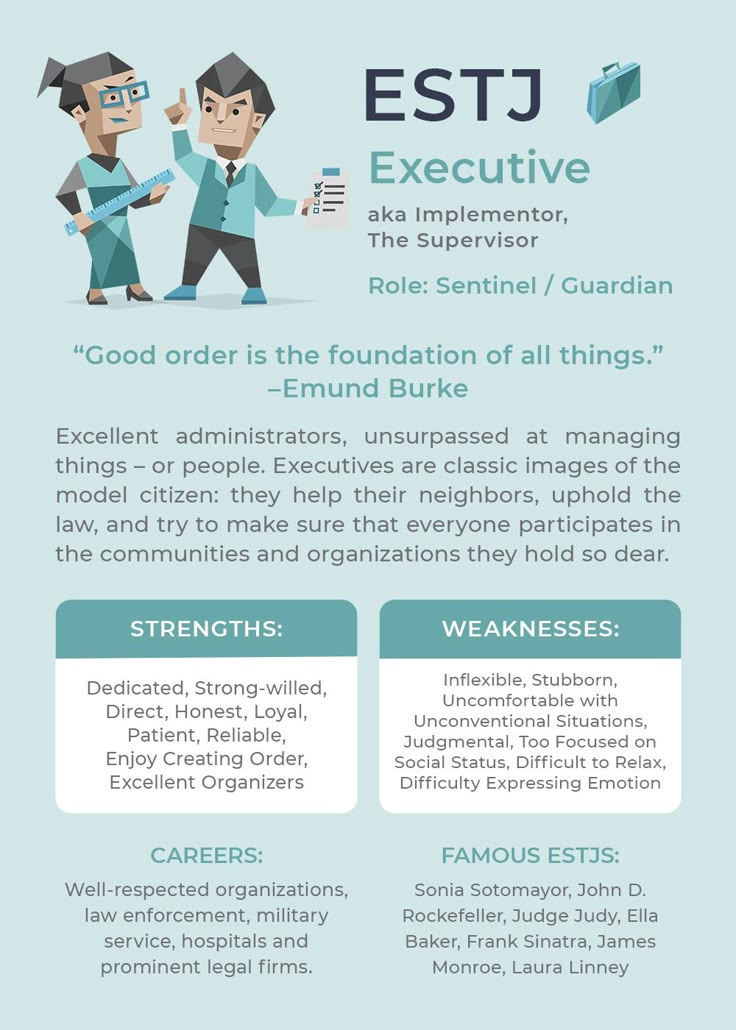
However, instead of closing in the depth of their world, INTJs should find a proper circle of similar characters while giving an honest try to see other people’s qualities.
- Enhance their brilliance without appearing arrogant
Individuals with the Architect personality type are very creative, out-of-the-box visionaries that stand out with their uniqueness.
However, they are often so self-absorbed that they don’t honestly care how they appear in other people’s eyes. Therefore, they leave a negative impression of being arrogant and unfriendly, even to people who are supposed to help them or support them.
If INTJs show more tolerance and patience, they could quickly get sympathies from those around them.
- Try to get in touch with their emotions
Not that INTJs are heartless, emotion-deprived individuals. They just need to approach feelings with the same understanding as they approach any other matter in their lives.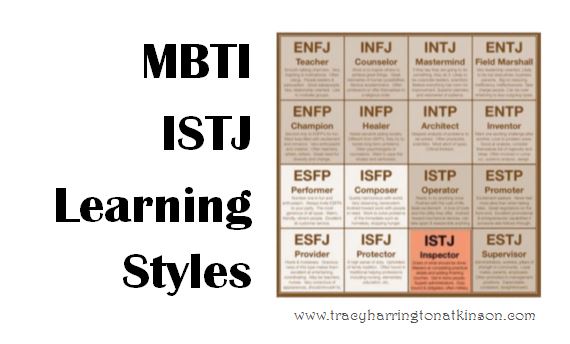
Are you an INTJ?
Take the free personality test to identify your true personality type. 16 Personality Types test reveals who you naturally are and why you do things the way you do. With this knowledge of yourself, you can build successful careers, find a dream job, build strong relationships, and live an authentic life.
TAKE THE FREE PERSONALITY TEST
How to Minimize and Deal with INTJ weaknesses
- Find balance
INTJs are simply said, workaholics who can get thoroughly consumed with their work, particularly if that’s an exciting project that needs closure.
Yet, no matter how exhilarating that might seem, Architects need to focus on their wellbeing and the people they care about. This means making a conscious decision to genuinely consider other segments of their lives, not just the professional ones.
- Stop looking for a solution to every problem
The Masterminds’ natural tendency is to try to fix anything, from problems to people. They analyze the situation, spot inconsistencies, and put themselves on a mission to find an ideal solution.
They analyze the situation, spot inconsistencies, and put themselves on a mission to find an ideal solution.
However, INTJs need to be aware that not every problem should be immediately solved, nor must every person be fixed. Therefore, INTJs should be careful when making sudden decisions and consider the circumstances as well.
- Control their temper
INTJs can easily get frustrated as their lack of tolerance for mediocre people and situations is way too intense. In some cases, they can lose temper and have anger issues, leading to serious conflicts.
Yet, INTJs have an excellent logical and analytical function that can prevent them from reacting impulsively, even in intense situations. Therefore, instead of focusing on the subject of their annoyance, INTJs are advised to withdraw and act the best they could- logically and analytically.
- Understand that rules have a purpose
Even though INTJs are notorious when it comes to obeying rules, they need to understand that that’s the only way to ensure a functional society.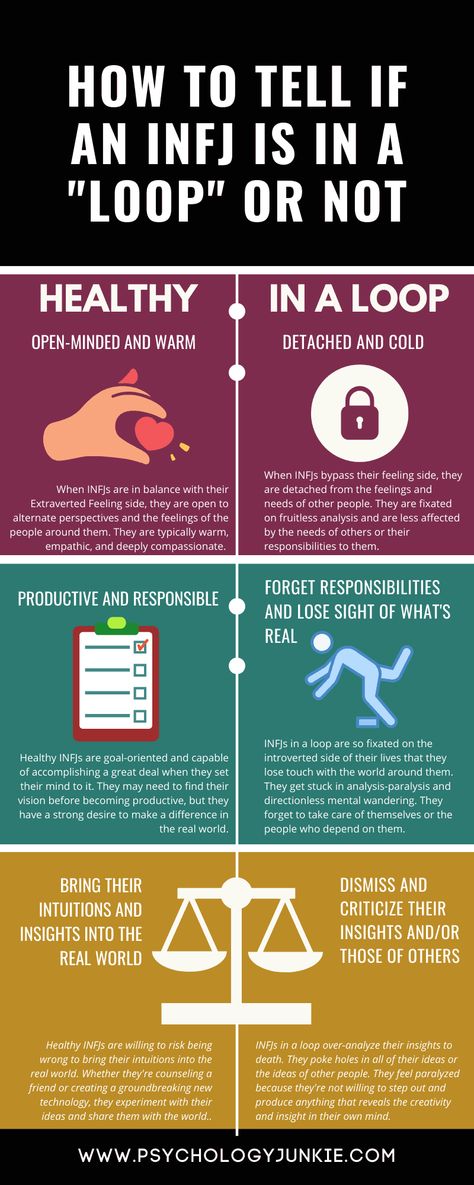 So, no matter how illogical and senseless some rules appear to be, INTJs are encouraged to comprehend their broader purpose and act in accordance with the expectations.
So, no matter how illogical and senseless some rules appear to be, INTJs are encouraged to comprehend their broader purpose and act in accordance with the expectations.
INTJ Strengths And Weaknesses F.A.Q
What were three specific examples of INTJ strengths?
INTJs have numerous key skills which help them succeed. One such key skill is their ability to be rational. They make decisions by weighing their options and do not make emotionally-driven decisions.
INTJs also have a passion for learning, making them curious. Their curiosity leads them to discover new things about themselves and the world around them. Finally, INTJs are also determined.
They ensure that the goals they set for themselves are met and often exceeded. INTJs do not rely on others to get work done; they do it themselves to ensure it is done right.
What are INTJs known for?
INTJs are stereotypically seen as quiet intellectuals. Many find them to be somewhat robotic when it comes to emotions.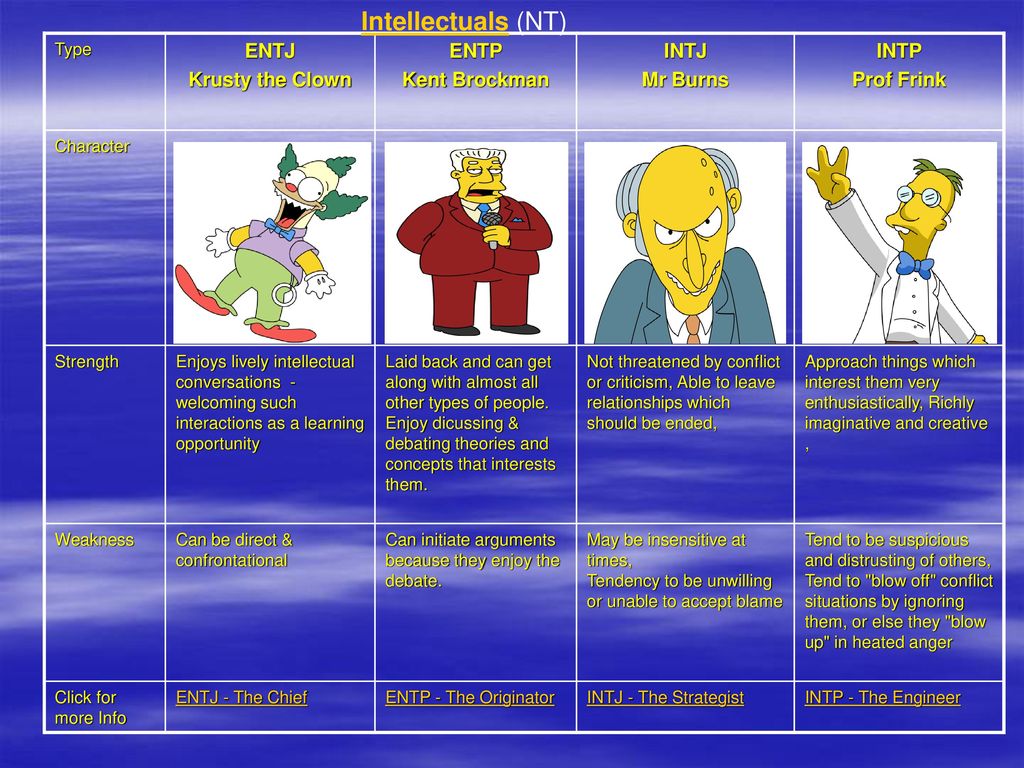 INTJs can be a bit awkward, especially if the topic does not interest them or does not matter.
INTJs can be a bit awkward, especially if the topic does not interest them or does not matter.
INTJs are known to excel at problem-solving and working on their own. This is why many employers give INTJs additional independence.
Why are INTJs so negative?
INTJs are usually not negative on purpose. However, they are rational and realistic. Because of this, they do not sugarcoat reality. INTJs are not the type of people to tell you something just to make you feel good.
They are focused on problem-solving and knowledge gathering. If optimism is not warranted, the INTJ may seem a bit pessimistic. Remember that they are not trying to hurt you or be a downer, but rather, trying to accurately assess reality.
What you shouldn’t do to an INTJ?
Certain tasks and mannerisms annoy INTJs. Try not to force an INTJ to share their feelings. Emotions are not their strong suit, and they do not enjoy expressing them in public.
If you force the INTJ to engage in office chatter, they will become irritated.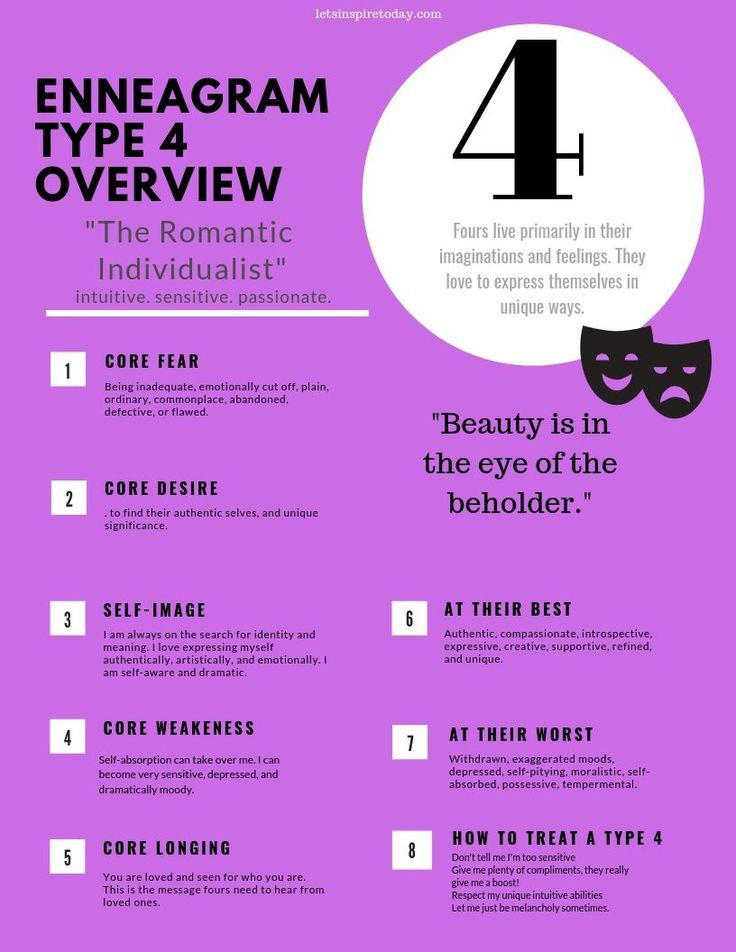 They view chatter as a distraction and avoid it. Rules are usually respected by INTJs, but forcing them to give up independence will likely make them upset.
They view chatter as a distraction and avoid it. Rules are usually respected by INTJs, but forcing them to give up independence will likely make them upset.
Independence allows INTJs to explore problem-solving on their own without restraint, so you can see why taking that away may cause issues.
Final Word
When a person knows his/her strengths and weaknesses, it is usually an open gate to self-correction and making the most of what someone has the potential to do.
So, when INTJs consciously uplift their talents and skills, they will steer their actions and intentions into well-defined goals without being distracted along the way.
Having said all of this, INTJs should grasp all their strengths without feeling that they don’t fit in. All that intelligence and brilliance can help them stand out. If they dedicate themselves to improving and creating, they can quickly gain lots of sympathy and support from society.
This means that instead of being overly critical, impatient, and arrogant, INTJs can work on their most enhanced weaknesses and try to understand other people.
Only when INTJs see their brilliance as a gift that can uplift others and stop looking down on people they consider inferior to them, their life will make more sense.
YOU MAY ALSO LIKE
INTJ WEAKNESSES: 7 TRYING TO BE INTJ
In INTJ, the personality is described as a strategic mastermind. Among their strengths is the ability to anticipate complications and develop effective contingency plans that avert disaster and crisis. INTJs live mostly in the world of their introverted intuition, which makes their outlook very impressionistic in nature. They think in terms of images and patterns and are often preoccupied with the desire to interpret and evaluate meanings, paths, and future outcomes. Along with their strengths, there are also personality weaknesses that many INTJs can struggle with. Here's a look at 7 challenges to being an INTJ.
1. INTJ Frustrated.
Surveys show that INTJs are among the most depressed people. Ironically, they are also the type of people who worry least about school, caring for aging parents, balancing home and work, health, and caring for children.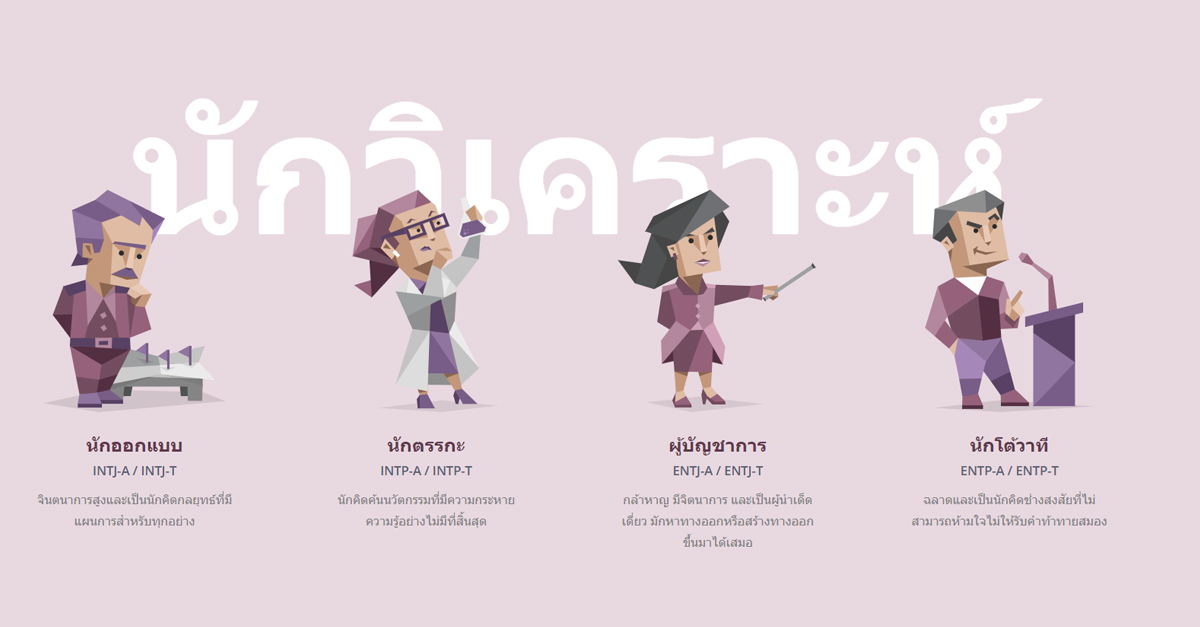 They report high levels of stress related to their profession, intimate relationships, and finances. INTJs can sometimes go down a path that doesn't turn out to be what they imagined. INTJs can sometimes get caught up in the random attraction of their lower Se and all of its attributes. They may develop a certain idea of what success and an ideal life looks like, which is largely superficial and unrealistic. Also, INTJs may be overly concerned with material gain as a source of validation, rather than developing better self-knowledge. This can cause bitterness if they cannot achieve it, as well as feelings of shame and disappointment. Failure to meet your goals can seriously affect an INTJ's self-esteem.
They report high levels of stress related to their profession, intimate relationships, and finances. INTJs can sometimes go down a path that doesn't turn out to be what they imagined. INTJs can sometimes get caught up in the random attraction of their lower Se and all of its attributes. They may develop a certain idea of what success and an ideal life looks like, which is largely superficial and unrealistic. Also, INTJs may be overly concerned with material gain as a source of validation, rather than developing better self-knowledge. This can cause bitterness if they cannot achieve it, as well as feelings of shame and disappointment. Failure to meet your goals can seriously affect an INTJ's self-esteem.
2. INTJ Romantic problems.
Entering into a serious relationship can be a challenge for INTJs, and many may forgo intimate relationships in order to live secluded and hermetically for most of their lives. INTJs tend to look for like-minded people who can be hard to find. Many INTJs pair best with other INTJs. Their approach to dating is akin to a job interview where they, as an employer, are looking for a qualified person for a romantic partner position. INTJs tend to take the long-term potential of a romantic perspective seriously and don't tend to take those who don't meet their practical criteria too seriously, no matter how attractive they are. INTJs can appear confident and knowledgeable about what's attractive, but they can also show a lack of social grace and struggle in the art of creating emotional bonds and human connections. In addition, INTJs have trouble expressing their feelings, and some INTJs may nervously make fun of the level of emotional intimacy a partner may want from them. People who get into relationships with INTJs and other rational people often complain about being emotionally distant and cold.
Many INTJs pair best with other INTJs. Their approach to dating is akin to a job interview where they, as an employer, are looking for a qualified person for a romantic partner position. INTJs tend to take the long-term potential of a romantic perspective seriously and don't tend to take those who don't meet their practical criteria too seriously, no matter how attractive they are. INTJs can appear confident and knowledgeable about what's attractive, but they can also show a lack of social grace and struggle in the art of creating emotional bonds and human connections. In addition, INTJs have trouble expressing their feelings, and some INTJs may nervously make fun of the level of emotional intimacy a partner may want from them. People who get into relationships with INTJs and other rational people often complain about being emotionally distant and cold.
3. INTJ mismatch.
INTJs are highly independent thinkers and generally prefer to do what feels right to them despite society and social norms.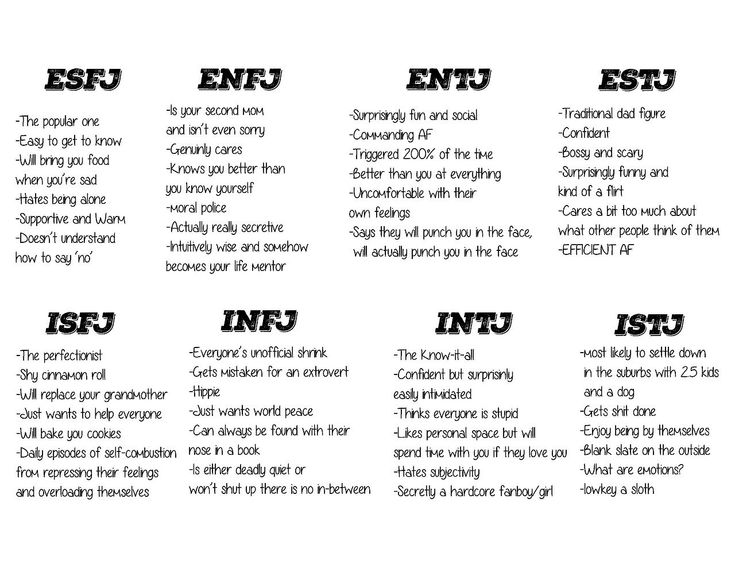 Like INFJs, INTJs are rarer types and therefore may appear out of place or abnormal compared to their peers. They are also unimpressed by authority titles and may resist authority figures that are perceived as attempts to coerce or impose irrational directives on the INTJ. This can contribute to some of the INTJ's social and interpersonal problems, especially in the workplace. INTJs tend to isolate themselves in various ways and struggle to fit in and relate to others.
Like INFJs, INTJs are rarer types and therefore may appear out of place or abnormal compared to their peers. They are also unimpressed by authority titles and may resist authority figures that are perceived as attempts to coerce or impose irrational directives on the INTJ. This can contribute to some of the INTJ's social and interpersonal problems, especially in the workplace. INTJs tend to isolate themselves in various ways and struggle to fit in and relate to others.
4. Poor INTJ bedside demeanor.
When it comes to expressing criticism and opinions, the INTJ tends to dismiss them with brutal honesty and directness. In many situations, INTJs don't see much point in sugarcoating the truth or embellishing their words with fluffy euphemisms that weaken the persuasiveness of their point of view. They make great efforts to formulate their thoughts with accuracy and clarity, and often may not consider how their words may be understood. In addition, INTJ communication skills may lack warmth and may show a high degree of harshness.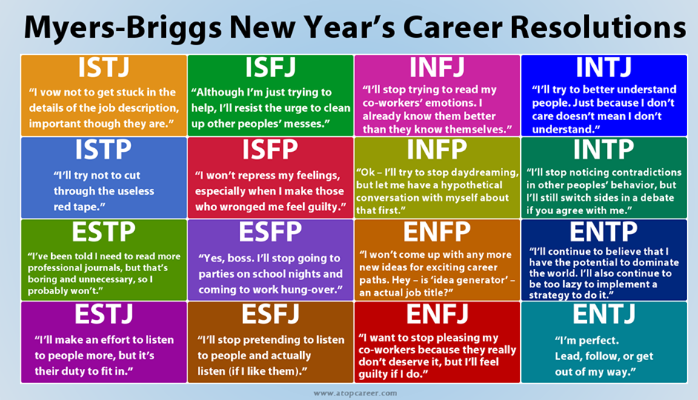 The tertiary Fi INTJ may be part of what makes them communicate with such unapologetic authenticity. At the same time, INTJs can have a bit of a dark sense of humor that can show up from time to time, which might be considered situationally inappropriate. Although it may not be their intention, INTJs can easily offend others with their insensitive remarks and harsh criticism. From their point of view, they are simply telling the truth as they see it.
The tertiary Fi INTJ may be part of what makes them communicate with such unapologetic authenticity. At the same time, INTJs can have a bit of a dark sense of humor that can show up from time to time, which might be considered situationally inappropriate. Although it may not be their intention, INTJs can easily offend others with their insensitive remarks and harsh criticism. From their point of view, they are simply telling the truth as they see it.
5. INTJ Tenacity.
The INTJ personality is notorious for its stubborn persistence, intellectual arrogance, and dismissive attitude. While INTJs, in the interest of improving both themselves and the systems they are part of, may have a healthy attitude towards criticism, sometimes they may not recognize their own shortcomings, focusing on the shortcomings of others. At best, INTJs are not threatened by other people's suggestions and criticisms. They tend to either take criticism into account or ignore it as invalid.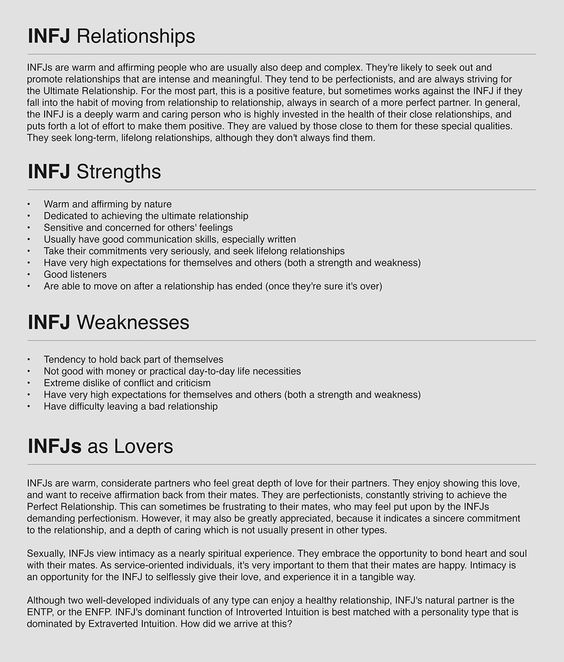 However, INTJs can sometimes display a pattern of resistance to criticism and unwillingness to take blame. At their worst, INTJs can become know-it-alls and pretentious elitist figures who judge others harshly and wrinkle their noses at just about anyone who doesn't live up to their standards and expectations - however unrealistic they may be. When people misunderstand them, INTJs may be convinced that it could only be due to the incompetence of others and not their own fault.
However, INTJs can sometimes display a pattern of resistance to criticism and unwillingness to take blame. At their worst, INTJs can become know-it-alls and pretentious elitist figures who judge others harshly and wrinkle their noses at just about anyone who doesn't live up to their standards and expectations - however unrealistic they may be. When people misunderstand them, INTJs may be convinced that it could only be due to the incompetence of others and not their own fault.
6. INTJ Missed moment.
INTJs are known for their long range perspective. In surveys, INTJs were found to project themselves the farthest into the future of all MBTI types. This preoccupation with the future is related to the dominant function of the INTJ, introverted intuition (Ni), which contrasts sharply with the spontaneous, momentary mode of extraverted perception (Se). Types with inferior Se, such as INFJ and INTJ, maintain a love/hate relationship with the sense world. They find it fleeting and meaningless, and when they indulge in it, it often happens in an overcompensating, extreme manner.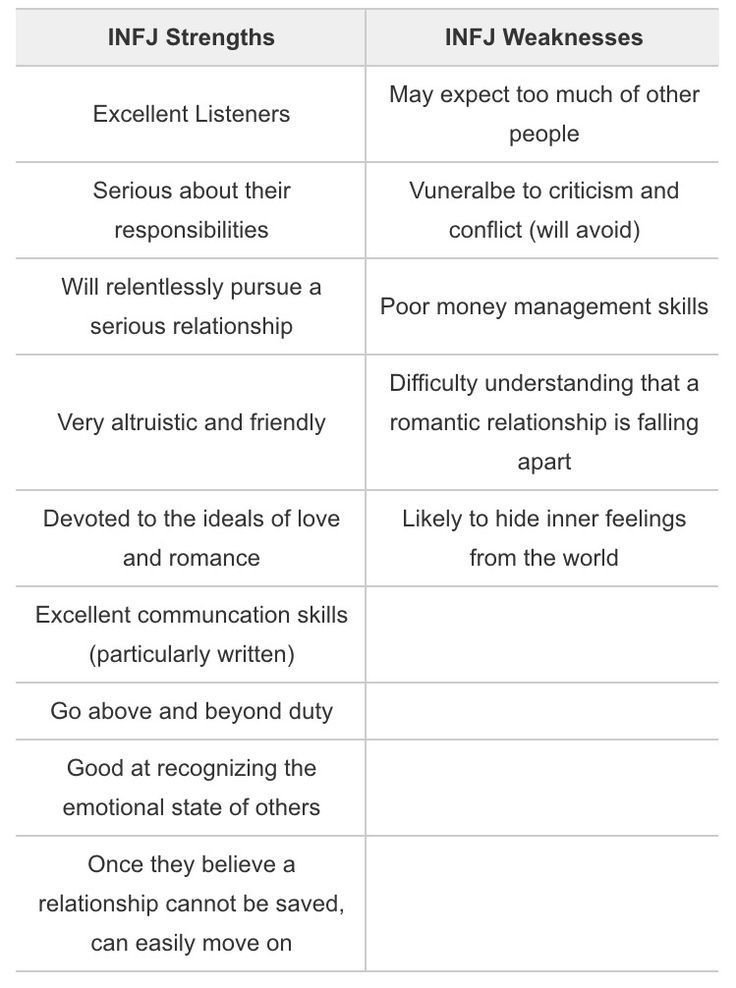 INTJs generally tend to be retarded who rarely go outside except when necessary, but secretly they would like to have some exhilarating experience and feel alive. They often bury themselves in their work; their thoughts were primarily focused on abstraction and the search for patterns. Their minds are often full of worries and fears. INTJs can easily get so caught up in their heads that they forget to stop, smell the roses, and appreciate the joys of life.
INTJs generally tend to be retarded who rarely go outside except when necessary, but secretly they would like to have some exhilarating experience and feel alive. They often bury themselves in their work; their thoughts were primarily focused on abstraction and the search for patterns. Their minds are often full of worries and fears. INTJs can easily get so caught up in their heads that they forget to stop, smell the roses, and appreciate the joys of life.
7. INTJ gets hung up on details.
Usually INTJs don't get hung up on details and prefer instead to focus on a broader perspective, but on a perspective that revolves around the main goal or objective. They mostly rely on their hunches and intuitive impressions to guide them forward. Sometimes, especially when under stress, INTJs can get so caught up in detailing that they can't see the forest for the trees. They may lose sight of the bigger picture by focusing on a specific problem. Moreover, INTJs can lose sleep due to constant worries and consideration of such issues, especially those related to finances.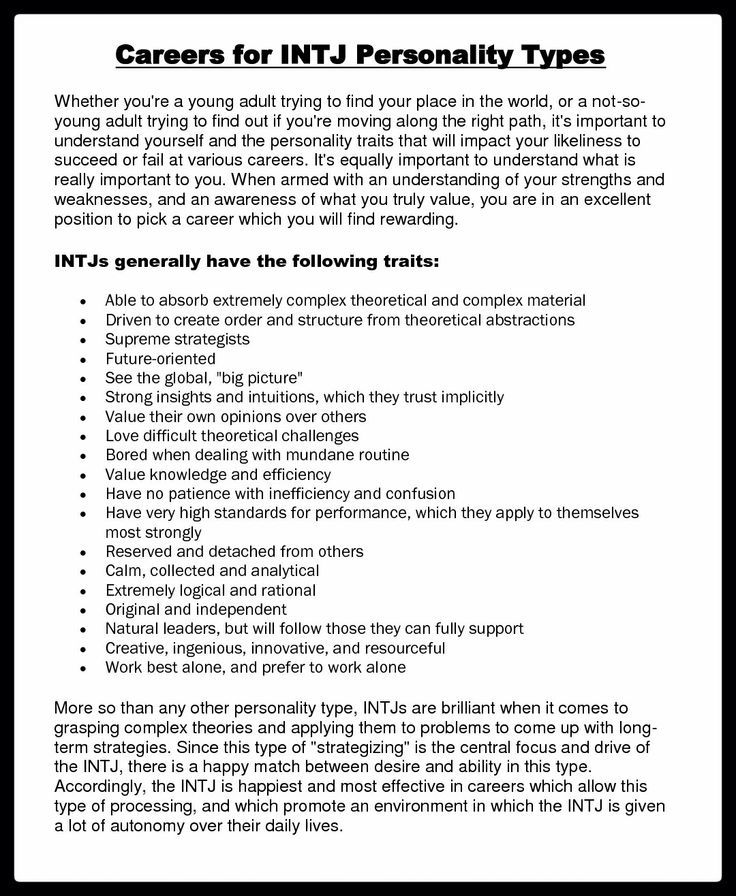 INTJs can experience intense anger and irritability under these conditions, which can cause tension in their relationships with other people. In the grip of their lower Ce, INTJs can sometimes overdo external sensory activities such as cleaning, restoring, and exercising—things that INTJs typically see as unwanted distractions that keep them from doing more meaningful and important tasks.
INTJs can experience intense anger and irritability under these conditions, which can cause tension in their relationships with other people. In the grip of their lower Ce, INTJs can sometimes overdo external sensory activities such as cleaning, restoring, and exercising—things that INTJs typically see as unwanted distractions that keep them from doing more meaningful and important tasks.
Similar messages:
- 35 Signs that you have the personality of INTJ
- 6 INTJ professions, which should be avoided by
- Compatibility of Intej and ENTP 6 high -paid vacancies for INTJ
- 12 and Zodiac
- INTJ relationships (with each type Myers Briggs)
- 25 INTJ statistics | Facts about INTJ
- How to recognize INTJ in public
- Causes and symptoms of depression INTJ
STRENGTHS OF INTJ: 7 AREAS IN WHICH INTJ DOMINATES.
Male or female INTJ is an introvert, objective, orderly, but at the same time creative and impressionistic.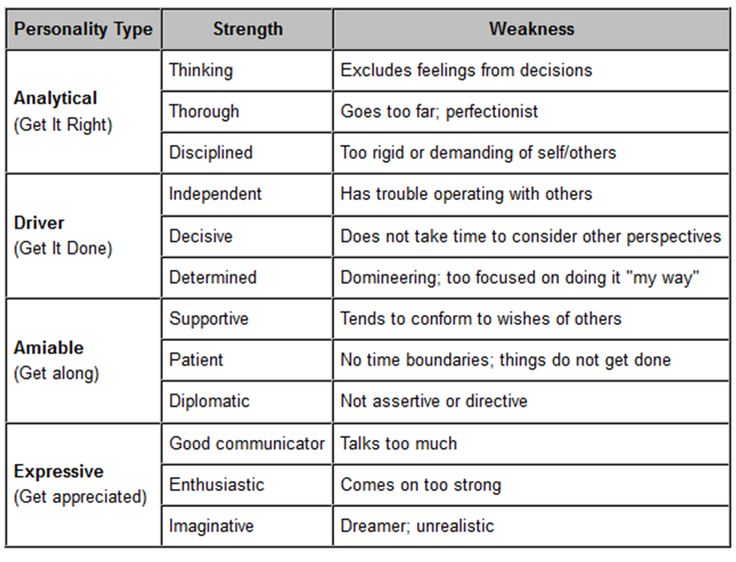 As an intuitive thinker, they love to explore ideas and theories, but as judgmental, they often do so with a practical purpose. As with every type of MBTI, the cognitive preferences that favor INTJs may give them an advantage over other types in certain areas. Here are 7 strengths associated with the INTJ personality type.
As an intuitive thinker, they love to explore ideas and theories, but as judgmental, they often do so with a practical purpose. As with every type of MBTI, the cognitive preferences that favor INTJs may give them an advantage over other types in certain areas. Here are 7 strengths associated with the INTJ personality type.
1. Strategy and contingency planning.
Although not all goals or objectives pursued by an INTJ will be successful, lack of planning is rarely to blame. Strategy is an art for which INTJs are well suited. It is no coincidence that INTJs such as Dwight D. Eisenhower, Bobby Fischer and Gary Kasparov are among the many prominent strategists in history. Because of their introverted intuition, INTJs are rarely myopic. They tend to consider long-term consequences and avoid hasty, impulsive, and thoughtless decisions. INTJs are always planning for the future, and their foresight often allows them to move forward in life, but also avoids many potential disasters.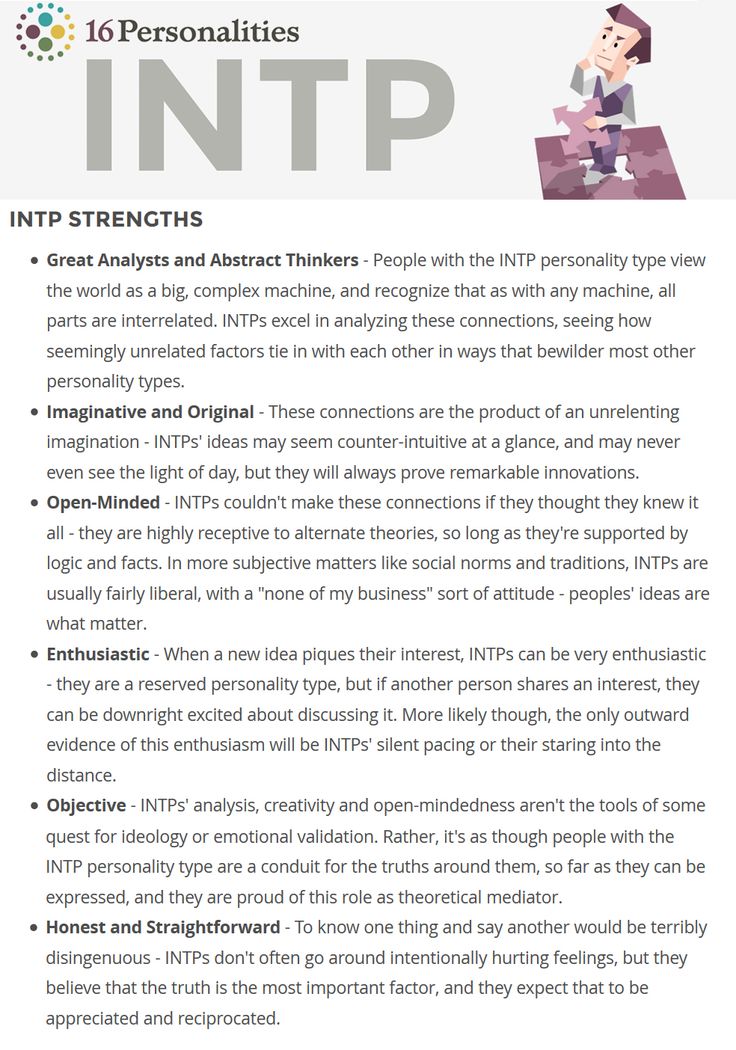
2. Self-discipline and delay in gratification.
As their lower extraverted perception might suggest, INTJs, among other things, have a limited and sometimes suppressed appetite for sensual pleasures and physically stimulating experiences. Because of this, INTJs are not guided by their impulses, in fact, they are often suspicious of them. They tend to think things over carefully and are willing to give up many unnecessary indulgences and fleeting thrills that can interfere with or sabotage their priorities.
3. Ruthless determination.
INTJs are very enterprising and persistent. The goals they set for themselves can turn into an exciting and obsessive activity. Once they form a picture in their minds of what they want, they begin the process of making a plan for how they will get it. More importantly, INTJs have the consistency and commitment to their goals, which allows them to stick to a plan long enough to see it through to the end.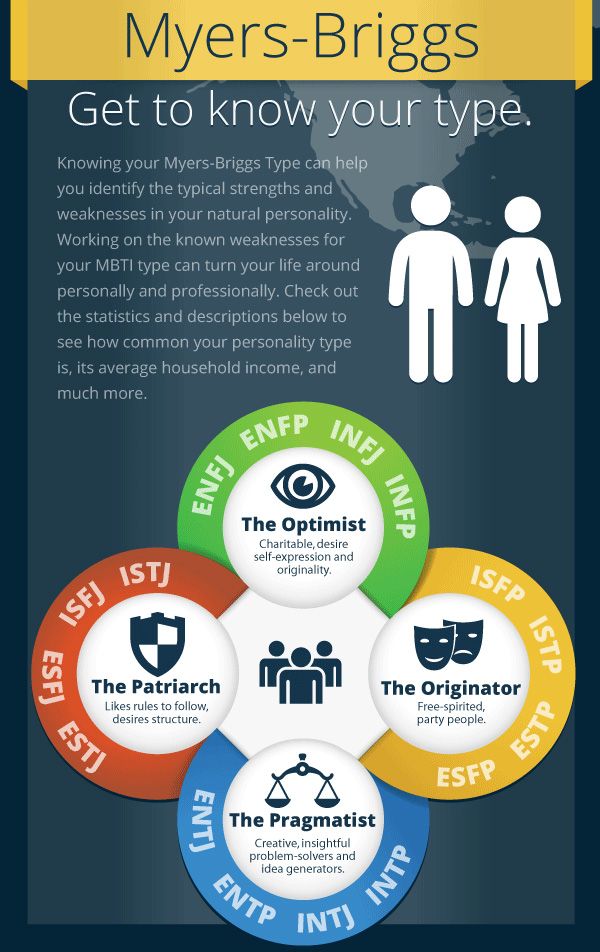 Even in the face of daunting setbacks, INTJs are able to maintain a certain rationality and clarity of perspective that allows them to quickly adapt and move forward without falling apart emotionally.
Even in the face of daunting setbacks, INTJs are able to maintain a certain rationality and clarity of perspective that allows them to quickly adapt and move forward without falling apart emotionally.
4. The power to focus and not be distracted from the task.
The ability to focus and focus on solving the task at hand is one of the most important characteristics of an INTJ. INTJs are able to distinguish between what is important at the moment and what does not deserve priority. What's more, they can actually sit down and get a lot of work done if they don't get distracted. Getting things done and doing something important is generally more interesting to INTJs than any random and frivolous activity competing for their attention.
5. Decisiveness.
As a type of judge, INTJs are able to form opinions and make decisions relatively quickly based on intuition based on technical data. In other cases, INTJs also turn to their tertiary introverted feeling when a more moralistic and empathetic point of view is appropriate.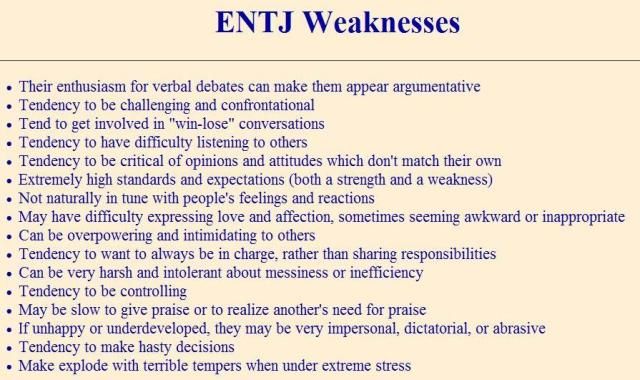 INTJs show a certain amount of confidence in their beliefs, which can sometimes make them appear intractable and unreceptive to other points of view. At best, INTJs have a sense of rational clarity that filters out irrelevant noise and allows them to make objective but humane decisions.
INTJs show a certain amount of confidence in their beliefs, which can sometimes make them appear intractable and unreceptive to other points of view. At best, INTJs have a sense of rational clarity that filters out irrelevant noise and allows them to make objective but humane decisions.
6. Effective time management.
INTJs are always aware of the limitations of their time and resources. They take scheduling and efficiency more seriously than INTPs and ENTPs. Whatever situation they find themselves in, INTJs want to know what they're getting into so they can structure their time and energy accordingly. They would like their lives to follow a fairly consistent and manageable structure, rather than operate within a more spontaneous, open, and varied style of routine.
7. Recognizing patterns and anticipating results.
Finally, INTJs are pattern and disturbance detectors. They are programmed to understand the abstract implications of how things fit together and extrapolate that into the future.